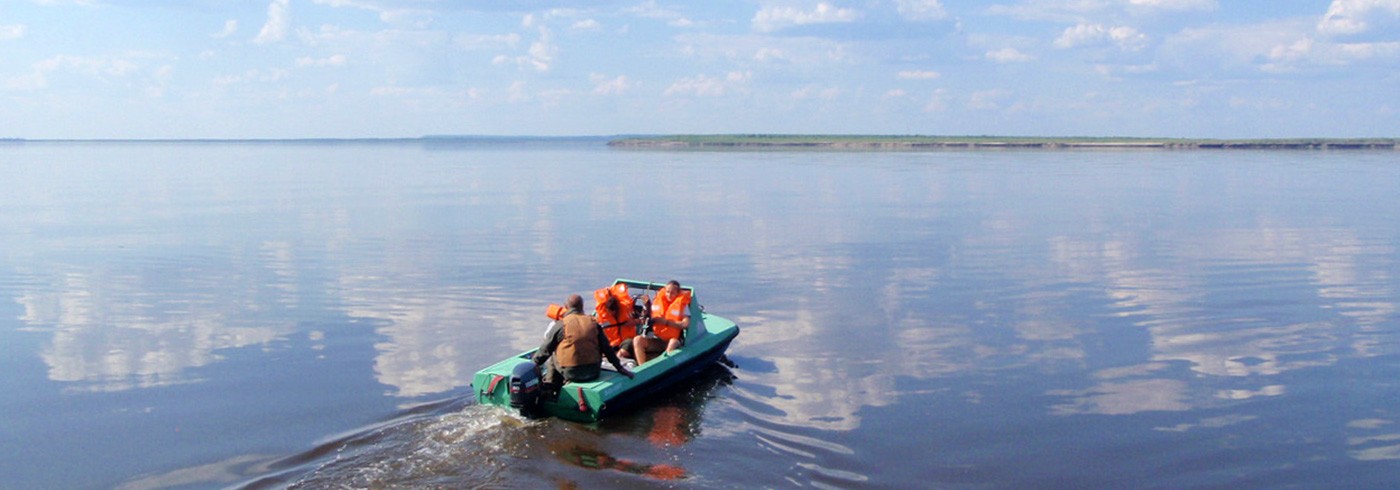Consequences of Siberian permafrost thawing for Lena River transport of carbon and metals
11 June 2013 - 29 June 2013This report describes the second fieldwork season of the project Climate Warming in Siberian Permafrost Regions: Tracing the Delivery of Carbon and Trace Metals to the Arctic Ocean.
Climate warming affects Siberian ecosystems by increasing permafrost thawing, changing hydrology, and modifying the geochemistry and nutrient cycling. This study of the permafrost-dominated Lena River watershed seeks to understand the present sources of river-transported carbon and metals and to predict future changes.
In June 2013, we returned to the Lena River system, focusing on sampling water and suspended particles along the river and major tributaries from the city of Yakutsk to the settlement of Dzhardzhan in the north.

Crew of R/V Merzlotoved, Lena River Study, 2013. Left to right: Anatoly Larionov (Captain), Trofim Maximov, Victor Larionov, Don Porcelli, Per Andersson, Andrey Boykov, Liselott Kutscher, Klara Ivanova, and Catherine Hirst. Photo: Roman Petrov
In collaboration with Russian colleagues from Yakutsk and using a river vessel, samples were collected from 41 stations. Water samples and suspended particles were shipped back for laboratory analysis of major solutes, trace elements, carbon content, and isotopic composition.
Microscopic imaging and analysis of river-transported particles let us identify key components and their importance for metal transport. Preliminary results indicate geographical differences in carbon concentrations and isotopic composition from different Lena River tributaries. These data let us identify important source areas for river-transported carbon.









